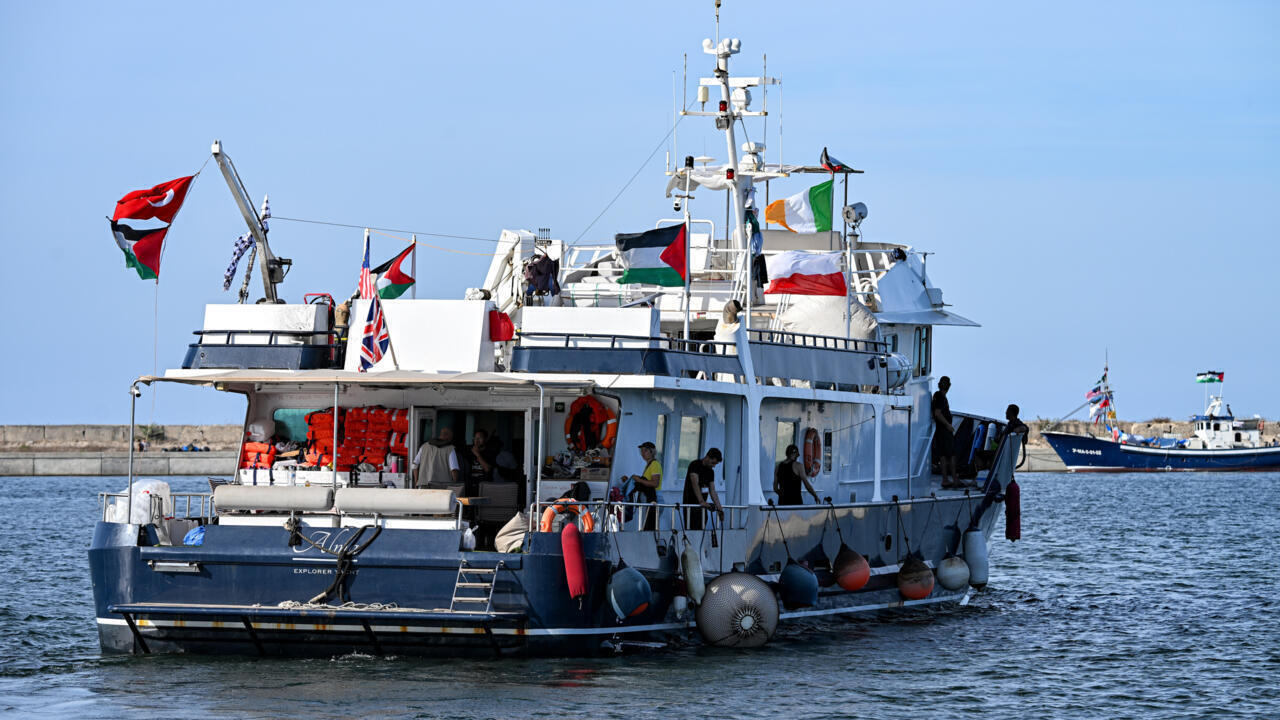
NGOCSTIP – Global Sumud Flotilla has drawn worldwide attention after Italian Prime Minister Giorgia Meloni publicly urged the aid convoy to stop sailing toward Gaza. The flotilla, which includes Swedish climate activist Greta Thunberg and several Italian parliamentarians, is attempting to challenge the Israeli naval blockade and deliver humanitarian supplies directly to the population of Gaza. According to the United Nations, widespread famine is being experienced by civilians in the territory, making the mission symbolically and practically significant. Meloni, however, cautioned that the action could undermine the fragile hope tied to the peace initiative introduced by US President Donald Trump to end the ongoing Israel Hamas war. Her concern lies in the possibility that the convoy could become a pretext for renewed violence. With this statement, Meloni set off an international debate about whether the flotilla should proceed with its mission or accept safer alternatives proposed for aid delivery.
The Italian government faces a complex dilemma with the Global Sumud Flotilla. At first, Italian naval ships escorted the convoy, but officials later withdrew them as escalation fears increased. Prime Minister Meloni explained that attempts to break the Israeli naval blockade could give adversaries justification for more violence. She argued that several safer aid delivery proposals exist and should be considered carefully. The government seeks to balance humanitarian goals with international diplomacy and regional stability. Critics claim this stance undermines solidarity with Gaza, while supporters call it a prudent move to prevent conflict. By highlighting Trump’s fragile peace plan, Italy positions itself as mediator and cautious ally in Middle Eastern politics.
Israel has firmly ordered the Global Sumud Flotilla to redirect its course and deliver aid through Israeli ports. Authorities promised that humanitarian supplies would then be transported to Gaza under Israeli oversight. The flotilla rejected this option, pointing to repeated accusations by the United Nations that Israel has blocked aid from reaching Gaza despite escalating famine conditions. This refusal underscores the deep mistrust between the convoy organizers and Israeli authorities. Supporters of the mission argue that only direct delivery ensures that supplies reach the people who need them most. Israel, on the other hand, insists that strict security measures are necessary to prevent weapons or unauthorized goods from entering Gaza. As the flotilla approaches the blockade line after sailing from Barcelona earlier in the month, international observers are bracing for a possible confrontation that could spark wider repercussions.
The Global Sumud Flotilla represents more than an aid mission. It symbolizes defiance against the blockade and unites activists opposing Israeli policies. Figures like Greta Thunberg and Italian parliament members join, boosting political visibility beyond humanitarian concerns. Supporters see the flotilla as solidarity with Gaza’s people enduring severe hardship. Critics view the mission as reckless provocation that risks derailing ongoing peace efforts. Prime Minister Meloni warned the fragile hope tied to Trump’s plan could collapse if the flotilla continues. The political stakes reach beyond Gaza, shaping relations between Europe, the United States, and Middle Eastern powers. The flotilla’s symbolic importance keeps it central to international debate and discussion.
“Read more: Tragedy in Gaza: Child Dies Amid Malnutrition Crisis Shocking the World!”
With the Global Sumud Flotilla nearing Israeli waters, uncertainty grows over what may happen next. Security experts warn direct confrontation at sea could escalate quickly, involving international powers and destabilizing the volatile region. Diplomatic efforts continue, with Italy urging the flotilla to stop and consider safer alternatives. Organizers remain committed to delivering aid directly to Gaza, stressing the urgency of the humanitarian crisis. This determination forces global leaders into a tough position, balancing humanitarian obligations with the need to avoid new conflict. The flotilla could trigger renewed violence or become a turning point in the blockade debate. The world watches closely as the convoy nears a decisive moment in its journey.
This article is sourced from news.detik.com and for more details you can read at ngocstip
Writer: Sarah Azhari
Editor: Anisa